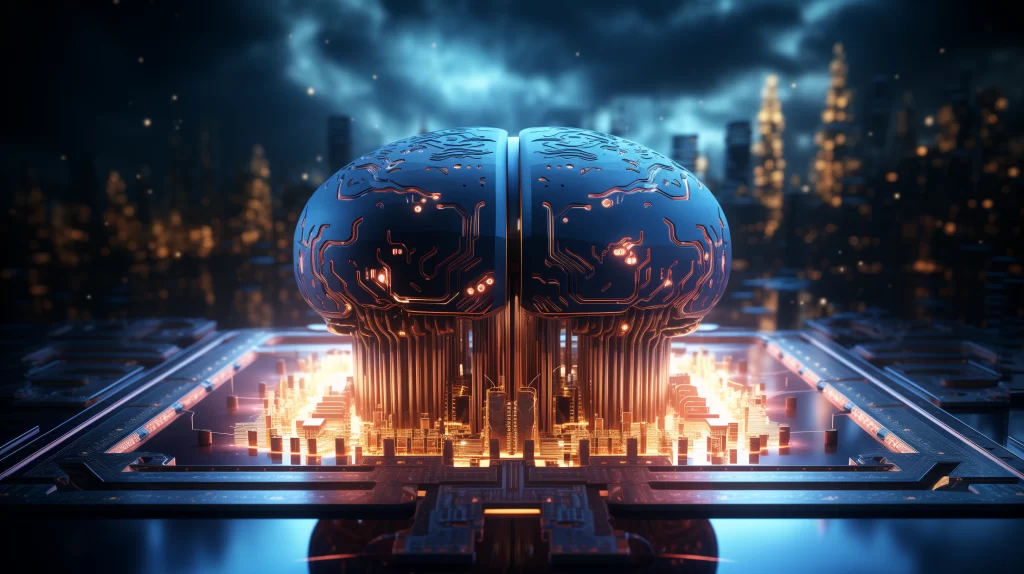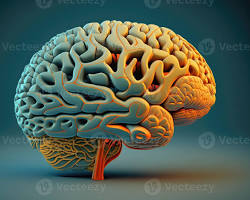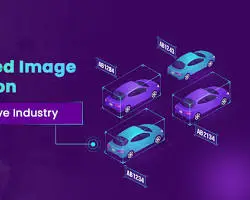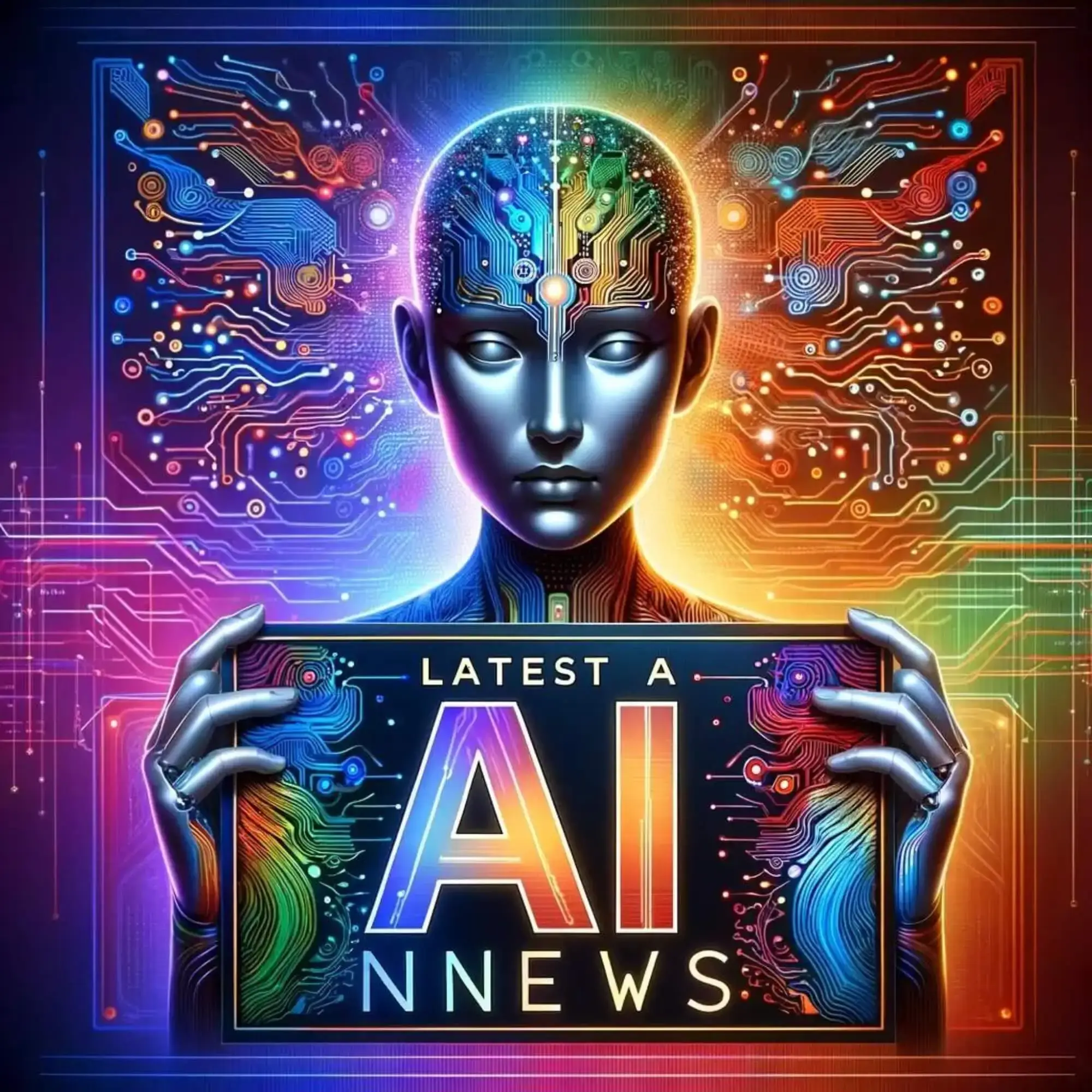
Disclaimer: I strongly believe in transparency. If you buy using the links on our site, we may earn a small commission without any extra cost to you. This helps me to keep producing honest reviews. Read more
Welcome to the ultimate destination for the latest artificial intelligence news. Stay ahead of the curve with the most cutting-edge developments in AI technology, robotics, and tech. Our platform covers the AI landscape, encompassing everything from new AI breakthroughs to chatbots, machine learning, and AI tools. Keep abreast of the 2023 AI summit, executive orders on AI regulation, and the latest insights into AI risks and privacy concerns.
Get unprecedented access to insightful news on emerging AI technologies and the transformative impact of AI on various sectors. From AI-powered innovations to the government’s role in regulating AI, we cover it all. Don’t miss out on the groundbreaking AI safety summit and the influential voices, such as Elon Musk, shaping the AI landscape.
Whether you’re an AI researcher, tech executive, or simply someone interested in staying informed about AI news, our platform provides comprehensive coverage of the latest AI news and top stories. Join us as we unveil the new artificial intelligence frontiers and discuss the societal implications of AI.
Latest Ai News: latest developments in Artificial Intelligence?
The latest developments in artificial intelligence have seen significant advancements in the field in recent years. OpenAI’s GPT-4, a state-of-the-art language algorithm, has made headlines with its ability to generate human-like text and responses.
This has led to the development of chatbots like ChatGPT, which are being integrated into various applications and customer service platforms. Meanwhile, tech giants like Microsoft are investing billions to develop AI systems that can transform industries and improve efficiency. However, there are also concerns surrounding the potential misuse of AI, with experts warning about the ethical implications of using such advanced technology.
On the political front, the Biden administration has expressed its commitment to regulating AI and ensuring responsible use of large language models. With governments and private companies heavily investing in AI, it is clear that artificial intelligence and robotics will continue to play a significant role in shaping the future.

2023 Latest Ai news

The 2023 latest Ai news is nothing short of groundbreaking. With Openai leading the charge in creating innovative ai chatbots and ai image generators, the possibilities for using AI continue to expand.
The recent inaugural global ai safety summit showcased the incredible potential for AI to revolutionize our world. From robots to chatbots, AI companies like Sunak and AI startups are at the forefront of this exciting technological revolution.
The developments in AI are truly awe-inspiring, and it’s remarkable to see just how far we’ve come in such a short time. The potential for AI to improve our lives is endless, and the possibilities for using AI to make the world a better place are truly inspiring. With so many advancements in AI technology, it’s an exciting time to be alive and witness the incredible impact of AI on our world.
Robotics and AI
Robotics and AI are at the forefront of technological innovation, paving the way for a future that was once only imagined in science fiction. Based on AI algorithms, robotics has the potential to revolutionize industries and improve efficiency in ways never seen before.
The U.S and Google’s investments in these technologies demonstrate the endless possibilities and opportunities that come with embracing AI. Despite Trump’s reservations, it’s clear that the future lies in the hands of AI and its integration with robotics.

UK Prime Minister Rishi Sunak has emphasized the importance of AI in driving economic growth and creating new job opportunities. However, it’s important to acknowledge the potential risks associated with AI as well.
As we navigate the cyber landscape, it’s crucial to stay vigilant and proactive in addressing the ethical and security concerns surrounding AI. Despite the challenges, the potential benefits of AI are undeniable, and with the right approach, it has the power to shape a brighter and more efficient future for us all.
Insight into emerging AI technologies.
As we delve deeper into the realm of AI technologies, experts say AI holds the key to unlocking a myriad of possibilities. While AI poses the potential for unprecedented advancements in almost every industry, it’s crucial to remain vigilant about its potential negative consequences.
From harmful AI to the anthropic creator, the need for advanced detection and hybrid AI-driven solutions is more important than ever. With the ability to detect and prevent harmful uses of AI, we can ensure that it is used for the betterment of society rather than to radicalize and polarize communities. As Mark Zuckerberg says, AI could even be used to create an audible sentence from a silent thought. So let’s embrace the potential of emerging AI technologies while remaining mindful of the mark AI could pose on our future.
Breakthrough in AI research
The breakthrough in AI research is nothing short of viral, sweeping through every industry imaginable. From Spotify using it to curate playlists to developers using it to create cutting-edge technologies, the emergence of AI in our daily lives is undeniable.
With the year 2024 on the horizon, it’s hard not to look inside and be excited about the endless possibilities this breakthrough will bring. It has the potential to redefine how marketers target consumers, how search engines operate, and even how world leaders like Joe Biden and Benjamin Netanyahu make decisions. With over 4 billion people on the internet, the impact of AI research is truly revolutionary.
How is AI impacting different industries?
Artificial Intelligence is having a major impact on various industries, transforming the way they operate and make decisions. In healthcare, AI is being used for personalized treatment plans and drug discovery. In finance, AI is revolutionizing fraud detection and risk assessment. The automotive industry is utilizing AI for autonomous vehicles and predictive maintenance. Retail is benefitting from AI-powered customer service and inventory management. And in manufacturing, AI is optimizing production processes and quality control. Across all sectors, AI is reshaping operations, increasing efficiency, and driving innovation.
The role of AI in tech industry
The role of AI in the tech industry is undeniably significant. It has revolutionized the way we work, communicate, and even live. With its ability to analyze data and perform tasks at incredible speeds, AI has opened up a world of possibilities for innovation and progress. Let’s embrace this technology and harness its potential to propel our industry forward.
AI’s influence in the government sector
With the advancements in AI technology, it has become crucial for the government sector to embrace these changes and leverage AI’s potential to improve efficiency and decision-making. AI can revolutionize governance by streamlining bureaucratic processes, enhancing public services, and providing valuable insights for policy-making. Let’s embrace this transformative technology and create a more responsive and effective government.
Impact of AI in healthcare and finance
The impact of AI in healthcare and finance is undeniable. From improving diagnostic accuracy and treatment outcomes to streamlining financial processes and reducing errors, AI is revolutionizing these industries. Embracing AI technology offers the potential to enhance efficiency, lower costs, and ultimately improve the quality of care and financial services provided to individuals and businesses.
AI’s implications for cybersecurity
AI has the potential to revolutionize cybersecurity by enhancing threat detection and response at speeds beyond human capabilities. With the ability to analyze vast amounts of data in real-time, AI can identify and mitigate security risks more effectively. This technology empowers organizations to stay ahead of malicious attacks and protect sensitive information with greater efficiency and precision.
New AI tools and AI systems
Language Models like GPT-4: These advanced models have significantly improved capabilities in understanding and generating human-like text, enabling a wide range of applications from creative writing assistance to programming and even complex problem-solving.
Generative AI in Art and Design (e.g., DALL-E, Midjourney): These tools are revolutionizing creative fields by generating highly realistic images and art from textual descriptions. They enable artists and designers to visualize concepts and ideas quickly.
AI in Healthcare (e.g., DeepMind’s AlphaFold): AlphaFold and similar tools have made groundbreaking advances in understanding protein folding, which is crucial for drug discovery and understanding diseases. Other healthcare AI tools assist in diagnosis, personalized treatment plans, and even robotic surgery.
Automated Machine Learning (AutoML) Platforms: These platforms, like Google’s AutoML, democratize AI by enabling non-experts to build and deploy machine learning models without requiring extensive programming expertise.
AI for Cybersecurity (e.g., IBM Watson for Cybersecurity): These tools use AI to identify and respond to cyber threats more quickly and efficiently than traditional software, constantly learning from new data to improve security protocols.
AI in Robotics (e.g., Boston Dynamics’ robots): Advanced AI integration in robotics has led to more sophisticated and adaptable robots that can perform a variety of tasks, from industrial automation to search and rescue operations.
Voice and Speech Recognition (e.g., Amazon Alexa, Google Assistant): These technologies have become more nuanced and context-aware, finding extensive use in home automation, customer service, and accessibility technologies.
AI in Finance (Algorithmic Trading): AI algorithms are increasingly used in the financial sector for predictive analytics, risk management, and algorithmic trading, offering more efficient and sophisticated market analysis.
Natural Language Processing (NLP) in Business Intelligence: NLP technologies are being used to extract insights from unstructured data, such as customer feedback or market reports, aiding in informed decision-making.
AI in Education (e.g., personalized learning platforms): These tools adapt learning experiences to individual students’ needs, enhancing engagement and efficiency in education.
It’s important to note that the field of AI is rapidly evolving, with new developments emerging regularly. The effectiveness and ethical implications of these tools are also areas of ongoing research and debate.
What are the potential risks and ethical concerns surrounding AI?
As we navigate the exciting world of AI, we must also be aware of the potential risks and ethical concerns that come with it. The rapid advancements in artificial intelligence pose the risk of job displacement and economic inequality, as well as the potential for AI systems to perpetuate bias and discrimination.
Furthermore, there are ethical concerns around the use of AI in military applications and surveillance. It is imperative that we approach the development and implementation of AI with caution and responsibility, ensuring that the technology benefits society as a whole while minimizing harm. By staying informed and actively participating in discussions around AI ethics, we can work towards a future where AI is used ethically and responsibly.
Privacy and ethical implications of AI
It is our responsibility to prioritize privacy and ethical considerations in the development and implementation of AI technology. The potential for AI to intrude upon individuals’ privacy is real, and we must actively work to mitigate these risks. As we harness the power of AI, it is essential to uphold ethical standards and protect the rights of individuals. By being proactive in addressing these implications, we can ensure that AI is used in a responsible and respectful manner.
Risks and harmful effects of AI
In a world where AI is becoming more prevalent, it’s important to be aware of the potential risks and harmful effects it can have.
While AI has the potential to revolutionize industries and improve efficiency, it also poses serious risks, such as job displacement and privacy breaches. It’s crucial for companies and individuals to approach AI with caution and consider the ethical implications of its use.
By staying informed and proactive, we can work to mitigate these risks and ensure that AI is used in a way that benefits society as a whole. Let’s embrace the potential of AI while also being mindful of its potential harms.
Regulating AI for minimizing risks
As the potential of AI continues to grow, it is crucial to stay ahead of the potential risks and challenges that come with it. By implementing regulations and guidelines for the development and use of AI, we can minimize the potential threats and ensure its responsible and ethical use.
It is important for us to take a proactive approach in addressing the potential risks associated with AI, so that we can harness its full potential without compromising the safety and well-being of society.
Together, we have the power to shape the future of AI for the betterment of humanity. Let’s work towards regulating AI to minimize risks and create a safer and more secure future.
Ethical use of AI algorithms and large language models
As we continue to develop AI algorithms and large language models, it’s crucial that we prioritize ethical use. These technologies have the power to transform industries and improve our lives, but we must ensure that they are used in a way that respects privacy, diversity, and human rights.
We have the responsibility to consider the potential consequences of our creations and to actively work towards minimizing any negative impacts. By prioritizing ethical use, we can harness the incredible potential of AI while maintaining the trust and wellbeing of our society. Let’s strive to create a future where technology serves humanity in the most ethical and responsible manner possible.
Who are the key players and researchers in the AI industry?
In the fast-paced world of artificial intelligence, several key players and researchers are making significant strides in advancing the industry. Companies such as Google, Microsoft, and Adobe are leading the charge in developing cutting-edge AI technologies and applications. Their investments and research efforts have proven fruitful, as they continue to push the boundaries of what AI can achieve.
Additionally, smaller players like Eleven Labs are also making notable contributions to the field, with their innovative approaches and solutions. Moreover, the emergence of quantum AI is opening up new frontiers and opportunities, with companies like Google and Microsoft actively exploring its potential. The collaboration and competition among these key players and researchers are driving the AI industry forward, inspiring others to join the movement and contribute to the exciting advancements that lie ahead.
Leading AI researchers and their contributions
The world of AI research is constantly evolving, and we owe a great deal of gratitude to the leading researchers who are pushing the boundaries of what is possible. Their contributions have paved the way for groundbreaking advancements in machine learning, natural language processing, computer vision, and more.
Geoffrey Hinton: Often referred to as the “godfather of deep learning,” Hinton’s research on neural networks and machine learning has been fundamental in the field. His work on backpropagation and deep learning techniques has been instrumental in advancing AI technologies.
Yann LeCun: A pioneer in machine learning and computer vision, LeCun has made significant contributions to the development of convolutional neural networks (CNNs), which are widely used in image recognition and processing.
Yoshua Bengio: Bengio is known for his work on artificial neural networks and deep learning. Along with Hinton and LeCun, he is part of the trio often credited with the advancement of deep learning in the 2000s.
Demis Hassabis: Co-founder of DeepMind, Hassabis has played a crucial role in advancing AI through projects like AlphaGo, which defeated a world champion Go player, showcasing the potential of AI in complex problem-solving.
Fei-Fei Li: Known for her work in computer vision and cognitive neuroscience, Li has made significant contributions to image recognition and machine learning. She led the creation of ImageNet, a large visual database instrumental for training AI systems.
Andrew Ng: Co-founder of Google Brain and a key figure in the development of massive open online courses (MOOCs), Ng has focused on deep learning, robotics, and education in AI.
Ian Goodfellow: Known for inventing Generative Adversarial Networks (GANs), Goodfellow’s work has been influential in the field of machine learning, particularly in unsupervised learning and neural networks.
Jürgen Schmidhuber: His contributions to neural networks, especially in the development of Long Short-Term Memory (LSTM) networks, have been fundamental in the progress of deep learning.
Daphne Koller: A key figure in the development of probabilistic models and Bayesian networks in AI, Koller has contributed significantly to machine learning and its application in biology and medicine.
Timnit Gebru: Known for her work in algorithmic bias and the ethical implications of AI, Gebru has been influential in bringing attention to the social and ethical dimensions of AI technology.
These researchers have contributed immensely to the field of AI, pushing the boundaries of what’s possible and paving the way for future innovations. Remember, the field of AI is rapidly evolving, and new contributors are emerging all the time.
How is AI being used in everyday applications?
AI is revolutionizing everyday applications in ways we never imagined before. From personalized recommendations on streaming platforms to smart virtual assistants that can help manage our daily tasks,
AI is seamlessly integrated into our lives. It’s making our lives easier and more efficient, whether it’s through smart home devices that adjust to our preferences or using predictive algorithms to improve healthcare outcomes.
The possibilities are endless, and the impact is profound. Embracing AI in everyday applications means embracing a future where technology works for us, empowering us to achieve more and ultimately enhancing the quality of our lives. So let’s continue to embrace and explore the potential of AI in our daily lives, because the benefits are truly extraordinary.
AI-powered chatbots and their impact
AI-powered chatbots are revolutionizing the way businesses interact with customers. With tools like Answerly, Support Board, and Chatwith, companies can now provide 24/7 customer support without having to hire additional staff.
These chatbots are intelligent and intuitive, able to understand and respond to customer inquiries in a natural and conversational manner. By utilizing AI-powered chatbots, businesses can streamline their customer service processes, saving time and resources while improving the overall customer experience. The impact of these chatbots is undeniable, with increased efficiency, improved customer satisfaction, and ultimately, a boost in business success. Embracing this technology is a smart and strategic move for any company looking to stay ahead in the competitive marketplace.
Application of AI in image generation and recognition
Artificial intelligence (AI) has revolutionized the way we interact with images, enabling both their generation and recognition with remarkable accuracy and efficiency. AI-powered image processing tools have permeated various industries and applications, from healthcare to entertainment, transforming how we perceive and utilize visual information.
Image Generation
AI algorithms can generate entirely new images, ranging from realistic photographs to artistic creations, with astounding creativity and detail. This capability is fueled by generative adversarial networks (GANs), a type of machine learning model that pits two neural networks against each other, one generating new images and the other evaluating their authenticity.
- Medical Imaging: AI can generate synthetic medical images, such as MRI scans or CT scans, to augment existing datasets and improve the training of AI-powered diagnostic tools. This can lead to more accurate diagnoses and personalized treatment plans.

AIgenerated medical images
- Fashion Design: AI can assist fashion designers in creating new designs and patterns by analyzing trends, customer preferences, and existing designs. This can accelerate the design process and lead to more innovative and appealing products.

AIgenerated fashion designs
- Art Creation: AI can generate original artwork, mimicking various artistic styles and techniques. This has opened up new avenues for artistic expression and exploration.

AIgenerated artwork
Image Recognition
AI algorithms can identify and classify objects, scenes, and activities in images with remarkable accuracy. This ability has led to a wide range of applications in various fields.
- Self-driving Cars: AI-powered image recognition is essential for self-driving cars to navigate safely and effectively. It allows them to identify traffic signs, road markings, pedestrians, and other vehicles, enabling them to make decisions and react appropriately.

AIpowered image recognition in selfdriving cars
- Facial Recognition: AI can recognize faces in images and videos, with applications in security and surveillance, access control, and photo organization. It can also be used to identify individuals in crowd scenes or track their movements over time.

AIpowered facial recognition
- Medical Diagnosis: AI can analyze medical images, such as X-rays or pathology slides, to detect abnormalities and assist in diagnosis. This can improve the accuracy and efficiency of medical diagnosis, leading to better patient outcomes.

AIpowered medical diagnosis
In addition to these specific applications, AI is transforming image processing across various industries, from agriculture to manufacturing, retail, and environmental monitoring. AI-powered image analysis is enabling businesses to gain insights from visual data, optimize processes, and make data-driven decisions.
FAQ’s
Q: How can I stay updated on the latest AI news and top stories?
A: You can stay informed about the latest AI news and top stories by following reputable tech news websites, subscribing to AI-focused newsletters, attending AI summits and conferences, and following key AI researchers and companies on social media platforms.
Q: What are some notable AI summits and conferences I should be aware of?
A: Some notable AI summits and conferences include the AI Safety Summit, where experts discuss the ethical and safety implications of AI, and the AI Tech Summit, which focuses on the latest technological advancements and applications of AI in various industries.
Q: Who are the key figures in the AI industry to watch out for?
A: Key figures in the AI industry to watch out for include researchers from organizations such as OpenAI, executives from leading tech companies like Microsoft and Google, and visionary leaders such as Elon Musk who are at the forefront of AI development and innovation.
Q: What are the potential risks associated with the rapid advancement of AI technology?
A: The rapid advancement of AI technology poses potential risks such as harmful AI applications, ethical concerns related to AI’s impact on society, and the need for robust regulations to ensure responsible AI development and deployment.
Q: How is AI being used in chatbots and AI-powered tools?
A: AI is being used in chatbots and AI-powered tools to facilitate natural language processing, personalized interactions, and automated responses. These applications are transforming customer service, virtual assistants, and diverse industries requiring AI-driven solutions.
Q: What are some recent notable breakthroughs in AI research?
A: Recent notable breakthroughs in AI research include advancements in generative AI models, AI image generators, and innovative applications of machine learning. These developments are paving the way for new opportunities and challenges across multiple sectors.
Q: How does government involvement impact the future of AI development?
A: Government involvement in AI development influences regulations, funding for AI initiatives, and policy decisions that shape the ethical and responsible use of AI. It also impacts international collaborations and efforts to address global AI challenges.
Q: What are the potential implications of using AI in image generation and manipulation?
A: The use of AI in image generation and manipulation raises concerns about the creation and dissemination of misleading or synthetic content, as well as ethical considerations related to privacy, authenticity, and the potential for misuse of AI-generated visuals.
Q: How do industry leaders and experts address the possible risks and ethical concerns related to AI development?
A: Industry leaders and experts address the possible risks and ethical concerns related to AI development through active discussions, participation in AI safety summits, advocating for responsible AI practices, and collaborating on frameworks for AI regulation and governance.
📣 Attention, Valued Readers! 📣
🌟 Did you enjoy reading my blog post? If so, I would love to hear your thoughts in the comments section! 🌟
🔥 Your feedback ignites my passion to improve as a blogger and deliver even more captivating content! So, don’t hold back — let me know what you loved or what you didn’t quite fancy. Your comments are my ultimate motivation! 🔥
☕️ Oh, and by the way, since you’ve invested your precious time in my blog, why not show some extra support


